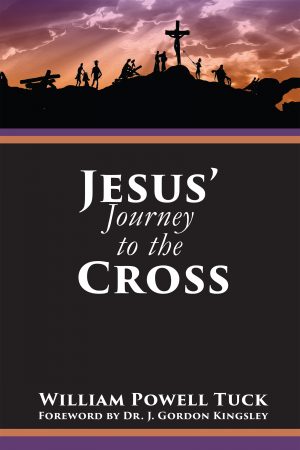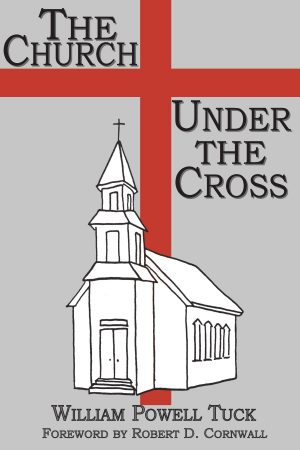William Powell Tuck: The Importance of Moral Living
by Dr. William Powell Tuck, friarsfragment.com, retired pastor, professor and author of The Forgotten Beatitude: Worshiping Through Stewardship, A Positive Word for Christian Lamenting: Funeral Homilies, The Church Under the Cross, and more!
In a recent Gallup Poll, it was noted that 80 per cent of persons in the United States said that moral ratings were at the lowest point in seven years. What does that say about the state of our country now? I believe that a part of the origin of our problem in morality is the belief in absolute freedom. Absolute freedom is a myth because no one can do anything that he or she may want to do at any moment without regard for other people. My actions and your actions involve others, and we are never totally isolated in what we say or do in any particular moment. Rules do have importance in life. Persons are, of course, more important than rules. Jesus indicated that persons were more important than regulations about the Sabbath Day. Persons were more important than the rigid legalism of the Jewish system that focused on minor details of the law. But Jesus did give us some principles about life in the Sermon on the Mount and in his other teachings. His teachings offer guidance on how we are to think about ourselves and how to relate to others in society. To say that there are no rules by which a Christian, a Jew, a Muslim, or an unbeliever lives, and that each is free to make up his or her own rules, is, in my opinion, to misrepresent that person’s faith or tradition. The Ten Commandments are still valid as basic guidelines for living. As a Christian, I seek to follow Christ and to incorporate the principles of his life and teachings into my own life, and I think persons of other faith traditions need to do the same with their teachings.
A father of twelve children who lived in a house with only one bathroom, once said: ”Rules are not an option here. They are a necessity!” And so are moral principles. When we try to live in the world, rules are not just optional, they are essential. This is true not only in individual relationships but most especially when we move to the wider dimension of society at large. What I do privately not only affects me, but it also touches other people. In society, I may live a private moral life but my morality must also move over into the business world where I work, and in the industrial and financial world in which I am involved. “He who claims he doesn’t need anyone is either ignorant or a liar,” Michel Quoist writes, “because he lives thanks to other people who have engendered life since the beginning of time. If he refuses to live for others, he is a parasite. He grows by feeding off his brothers.”
Over eighty years ago Reinhold Niebuhr, one of the great moral theologians of the last century, wrote a book entitled Moral Man and Immoral Society. In this book, he addressed the issue of morality in one’s private life and the difference in morality in our business, industrial, national, and other collective areas. Persons can often do very immoral things in the collective areas of life and never see how that is immoral. Niebuhr’s challenge echoes the biblical demand that morality is an absolute necessity in our business practice and in all our public as well as private relations with people. Morality is not limited to one’s private life, as important as that is, but moral values should permeate our relationships in business, industry, government, and other collective institutions. Walter Rauschenbusch has reminded us that “sin is not a private transaction between the sinner and God.” “Humanity always crowds the audience-room when God holds court,” he declares. Amos had cried for justice in the land of Israel, “seek good and not evil … Hate evil and love good; enthrone justice in the courts” (Amos 5:14-15, NEB).
Morality is not merely what one thinks is correct in the moment. Too many people depend on their conscience alone. They assume that if one thinks it is the decent thing to do that will make it okay. They declare that they will let conscience be the guide. I am sometimes very troubled by some people who want to follow their conscience, because their conscience does not seem strong enough morally to give them the kind of guidance which they need for a valid decision. When decency has no spiritual rootage, I believe, it is based primarily on what some individual thinks is right or wrong. I am very frightened of those who want to let their conscience be their primary guide. Some people have too easily and quickly let their conscience become twisted and distorted by all kinds of negative influences upon it.
I have often wondered if we would do certain things, if we would give it the publicity test. How would you like for certain acts or deeds which you have done to be reported in the local newspaper, or on the local television, or Facebook or to be reported in the paper of your church, or synagogue or in the community? None of us may want some dark deeds done in the shadows to be put into the public eye. But one of the tests for our morality might be, “Can it stand the test of daylight and exposure in the public arena? Can it stand the public test of those around me–my friends, and others? Do I want private acts to be known in public circles? “You won’t even achieve enduring external success,” David Brooks attests, “unless you build a solid moral code.”
Some politicians have later gotten into great difficulty because of indiscrete acts they engaged in earlier in life. So, you and I should seek to live in such a way that our lives are not destroyed later by the acts we may do in the darkness or in times of weakness. Learn to let the test of publicity remind us that our moral lives are evidence that we have been challenged to live morally in the light or dark places of our lives.
I heard about a woman who had lost her sense of touch. She could place her hand on a hot stove and be burned badly because she could not feel it. Her hand could be literally frozen to a block of ice because she could not feel the pain. A pin could be stuck in her hand and she could not feel it. That is a great tragedy and danger. What an even greater tragedy it would be for those of us who are supposed to be children of God, if we lose our sense of feeling for what is right and wrong. Injustice, immorality, and unethical behavior are too much evident in our land and around the world. We are challenged not only to do what is right and moral ourselves, but we must seek to see that justice and righteousness is directed and administered for all persons regardless of their race, sex or sexual preference, religion, creed, political alliance, economic status, belief, or non-belief.
-
 Jesus’ Journey to the CrossPrice range: $8.44 through $12.99
Jesus’ Journey to the CrossPrice range: $8.44 through $12.99 -
 The Church Under the CrossPrice range: $7.79 through $11.99
The Church Under the CrossPrice range: $7.79 through $11.99 -
 The Last Words from the CrossPrice range: $6.49 through $9.99
The Last Words from the CrossPrice range: $6.49 through $9.99
Featured image by Sasin Tipchai from Pixabay








